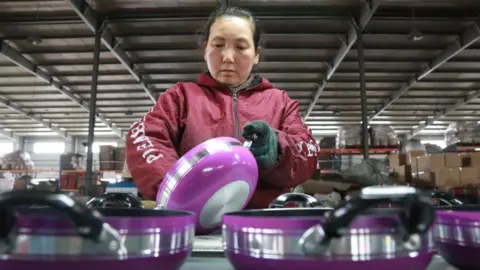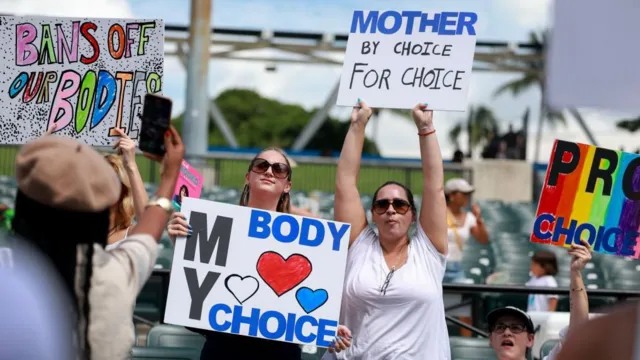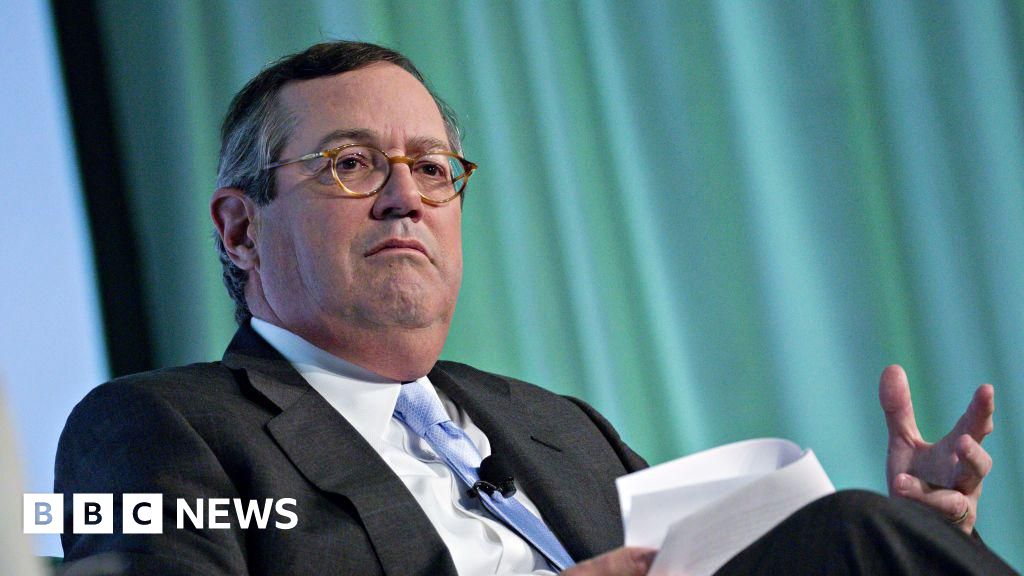Business reporter
 Getty Images
Getty ImagesStock markets have fallen in Asia after President Donald Trump suggested that new tariffs he is set to announce this week will hit all countries, not just those that have the biggest trade imbalances with the US.
Trump made the comments as he prepares to unveil a massive slate of import taxes on Wednesday, in what he has called America’s “Liberation Day”.
The measures will come on top of tariffs already imposed by Washington on aluminium, steel and vehicles, along with increased levies on all goods from China.
“You’d start with all countries,” Trump told reporters on Air Force One. “Essentially all of the countries that we’re talking about.
But he said his administration would be “far more generous” and “kinder” than the countries had been to the US.
With 48 hours to go before the tariffs come into force, the UK is still locked in talks with the US about an exemption.
On Sunday, Downing Street said that Prime Minister Sir Keir Starmer had had “productive negotiations” with Trump in a phone call, adding that talks would “continue at pace”.
On Saturday, government sources had said that the UK would not hesitate to impose its own tariffs on the US if needed.
Other jurisdictions, such as the European Union and Canada, have already said that they are preparing a range of retaliatory trade measures.
Kevin Hassett, director of the National Economic Council, recently told the Fox Business channel the tariffs would focus on 10 to 15 countries that have the worst trade deficits with the US, but did not name them.
Trump sees trade taxes – which in this case would be paid by the US companies importing goods – as a way of protecting the American economy from unfair competition and as a bargaining chip for getting better trading terms.
Concerns about a trade war are unsettling markets and creating fears of a recession in the US.
On Monday, Japan’s Nikkei 225 benchmark share index closed more than 4% lower, the Kospi in South Korea ended the day down by 3% and the ASX 200 in Australia fell 1.7%.
In afternoon trading the Hang Seng in Hong Kong was about 1.2% lower.
Over the weekend Trump’s advisers echoed his view that the planned tariffs could raise trillions of dollars and help create jobs in the US.
His top trade adviser, Pete Navarro, pointed to huge revenues he said the tariffs would raise.
The tax on all car imports could raise $100bn (£77.3bn) a year, Mr Navarro said. All the planned tariffs could raise $600bn annually, about a fifth of the value of total goods imports into the US, he added.
A White House fact sheet published last week suggested a 10% tariff on every import could create nearly three million US jobs.
However, there are concerns that tariffs could fuel inflation – something Trump pledged to reduce during his presidential campaign – if companies choose to pass on the higher cost of importing goods to their customers.
If companies absorb the cost, if could hit profit which in turn could affect investment.
‘Counter-productive’
Will Butler-Adams, chief executive of Brompton Bicycle, which makes folding bikes, said US tariffs were creating uncertainty.
While, at the moment, Brompton’s products are not facing additional taxes, he said the people interpreting the tariffs are trying to establish how much steel in products might have come from outside the US, which might therefore lead to tariffs.
“The reality is we don’t [know] actually and the people who are on the borders importing goods into the US don’t actually entirely understand how some of these tariffs might be put in,” Mr Butler-Adams said.
 Getty Images
Getty ImagesAbout 10% of Brompton’s sales come from the US, where it has grown from a staff of four to 40 people and has shops in New York and Washington.
But Mr Butler-Adams said tariffs might prove to be “counter-productive”.
“Ironically, if he puts taxes on, it is going to make our product less competitive,” he said.
“We won’t continue to invest in the same way that we are now. We may even shrink, in the extreme we might pull out.”
TikTok sale
Separately, Trump said a deal with TikTok’s Chinese owner ByteDance to sell the app would be agreed before a deadline on Saturday.
He set the 5 April deadline in January for the short video platform to find a non-Chinese buyer or face a ban in the US on national security grounds.
It had been due to take effect that month to comply with a law passed under the Biden administration.




